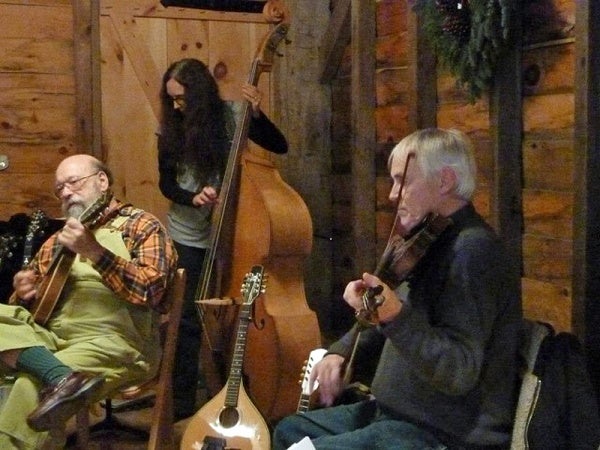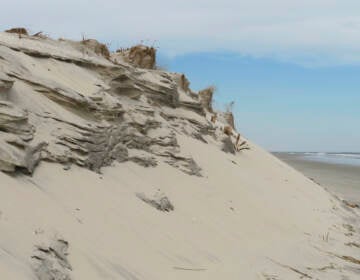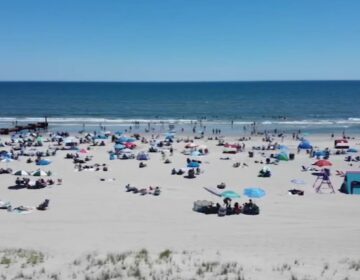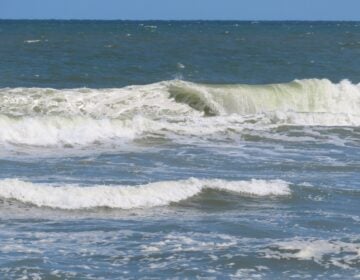Hopewell fiddle contest returns Aug 24
This is part of a series from Ilene Dube of The Artful Blogger.
Howell Living History Farm in Hopewell, N.J., bills itself as a time machine to the turn of the 20th century, when farms were bordered by snake fences and Osage orange trees, and farmers drove a team of horses to plow a furrow.
Farmers worked hard, building barns and delivering lamb, but they also knew how to have a good time, and at the end of the workday it wasn’t the electronic hearth or digital devices that entertained — the fiddle was the favored instrument at rural dances and social gatherings.
Howell Farm will draw fans of old time music August 24, when the Hunterdon Folk Exchange and the Friends of Howell Living History Farm present the annual Fiddle Contest. The event is the largest and longest running traditional fiddle contest in New Jersey, and draws some of the best fiddlers from throughout the tri-state region.
Carol Behrens has been coordinating the contest for nearly 30 years, having started in a church basement in Flemington before moving to the more spacious grounds of the farm.
Last year, more than 2,000 people came to the event, with 18 fiddlers participating in the contest. In past years, as many as 3,000 have come to hear 26 fiddlers.
Fiddlers sign up to play upon arrival. There’s even a children’s division for fiddlers age 13 and younger. Greg Myers, a fiddler with the Jugtown Mountain String Band, which opens with a few popular fiddling tunes, recalled a 3-year-old playing a rendition of “Three Blind Mice.”
Some prominent fiddlers have performed here, said Myers, naming Walt Koken, a leader in the old-time music revival of the 1960s, Travis Wetzel, who performs at the Grand Ole Opry, and David Bass, who plays with the band Freight Hoppers.
The outdoor event is held rain or shine, but there is a large barn for shelter if needed. Visitors bring lawn chairs or blankets, or dance.
The rules are simple. “We call it an old time fiddle contest, which implies a certain style, but we encourage any fiddler to play,” said Myers. “It doesn’t have to be Appalachian, it can be French Canadian or Northern Dance music or blues fiddle, as long as it’s a folk genre. We allow two tunes of varying tempos, no longer than three minutes.” Participants are permitted to have two backup musicians.
Mercer County Freeholder Andrew Koontz, a fiddler, often shows up and fiddles but not as part of the contest. “He asks not to be judged,” said Myers.
Fiddle music has developed a fairly large subculture across the country and its growing, said Myers, citing such popular bands as Carolina Chocolate Drops and Crooked Still. “There are huge festivals every year from Gaylax, Va., and Weiser, ID, to the Appalachian Stringband Festival in Clifftop, W. Va. A lot of people are learning to play on Youtube. We encourage young people to study fiddling. They find it easy and enjoyable, dance-y and fun.”
What’s the difference between a fiddler and a violinist?
“Violin players don’t smile,” said Myers, a fiddler who also plays mandolin, banjo and guitar. He never received formal training but learned by ear, watching others play. “That’s the old fashioned way, sorting it out on fiddle, and we believe it’s a better way to learn. In the old days you didn’t go out and buy sheet music, Grandpa took you out on the back porch.”
Fiddle tunes, which originated in England, Ireland, Scotland, France, Germany and Africa, tell the stories of life at the time: “Bonaparte Crossing the Rhine,” “Boil Them Cabbage,” “Buffalo Gals,” “Cotton-Eyed Joe.”
Admission to the contest and parking are free. The farm opens to the public at 10 a.m., and the contest will begin at noon. Carriage rides and lunch fare will be for sale. Fiddlers at Howell Farm be competing for cash prizes.
______________________________________________
The Artful Blogger is written by Ilene Dube and offers a look inside the art world of the greater Princeton area. Ilene Dube is an award-winning arts writer and editor, as well as an artist, curator and activist for the arts.
WHYY is your source for fact-based, in-depth journalism and information. As a nonprofit organization, we rely on financial support from readers like you. Please give today.







